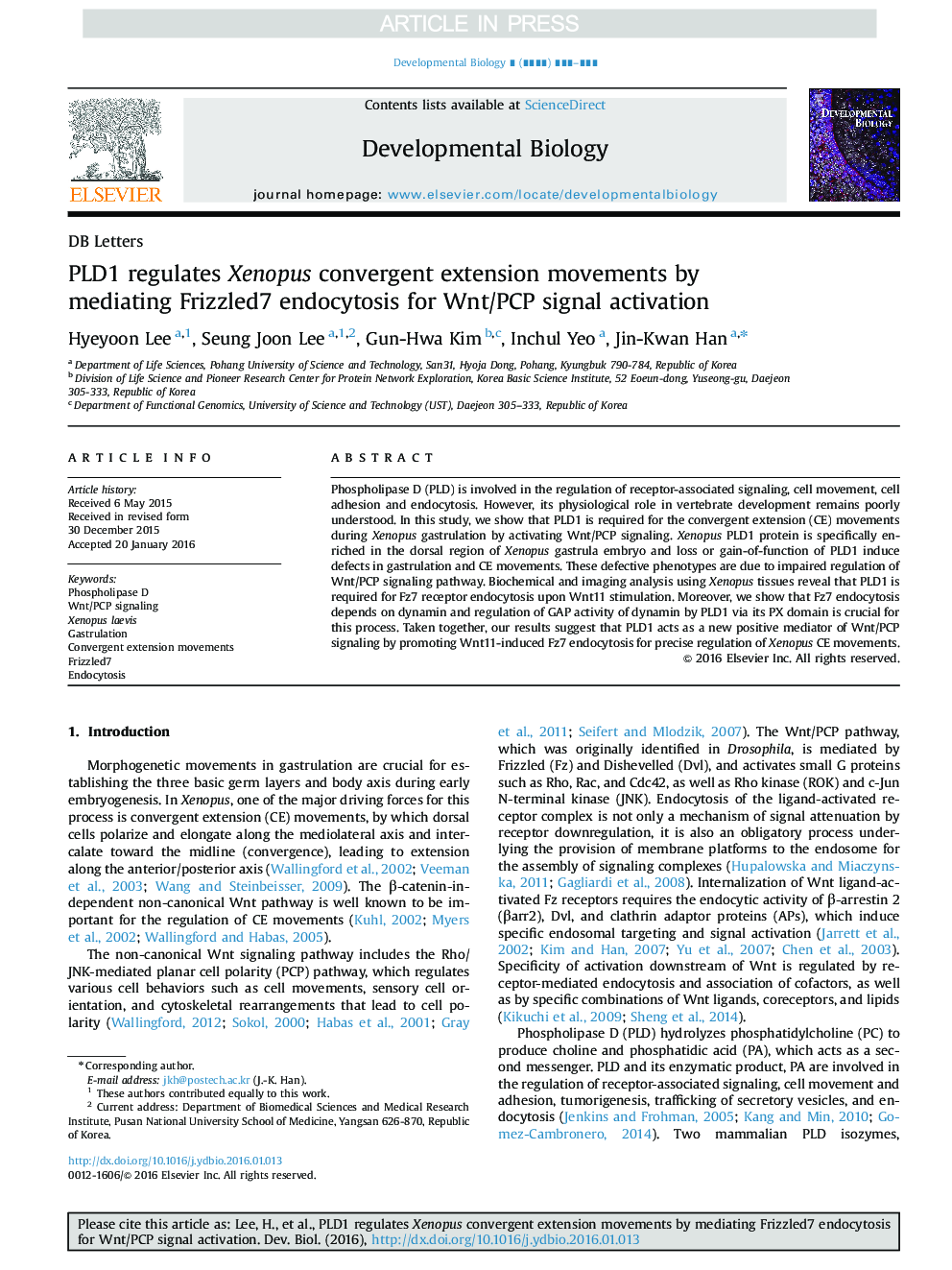| Article ID | Journal | Published Year | Pages | File Type |
|---|---|---|---|---|
| 10931224 | Developmental Biology | 2016 | 12 Pages |
Abstract
Phospholipase D (PLD) is involved in the regulation of receptor-associated signaling, cell movement, cell adhesion and endocytosis. However, its physiological role in vertebrate development remains poorly understood. In this study, we show that PLD1 is required for the convergent extension (CE) movements during Xenopus gastrulation by activating Wnt/PCP signaling. Xenopus PLD1 protein is specifically enriched in the dorsal region of Xenopus gastrula embryo and loss or gain-of-function of PLD1 induce defects in gastrulation and CE movements. These defective phenotypes are due to impaired regulation of Wnt/PCP signaling pathway. Biochemical and imaging analysis using Xenopus tissues reveal that PLD1 is required for Fz7 receptor endocytosis upon Wnt11 stimulation. Moreover, we show that Fz7 endocytosis depends on dynamin and regulation of GAP activity of dynamin by PLD1 via its PX domain is crucial for this process. Taken together, our results suggest that PLD1 acts as a new positive mediator of Wnt/PCP signaling by promoting Wnt11-induced Fz7 endocytosis for precise regulation of Xenopus CE movements.
Related Topics
Life Sciences
Biochemistry, Genetics and Molecular Biology
Cell Biology
Authors
Hyeyoon Lee, Seung Joon Lee, Gun-Hwa Kim, Inchul Yeo, Jin-Kwan Han,
